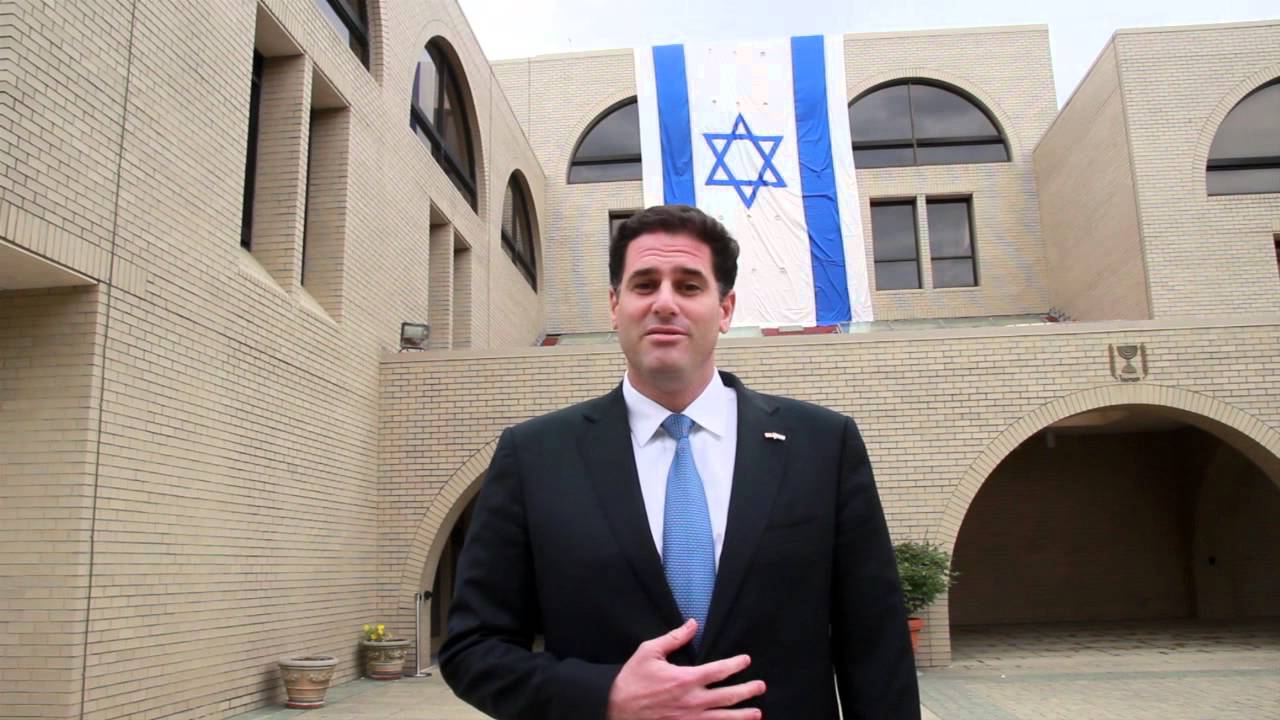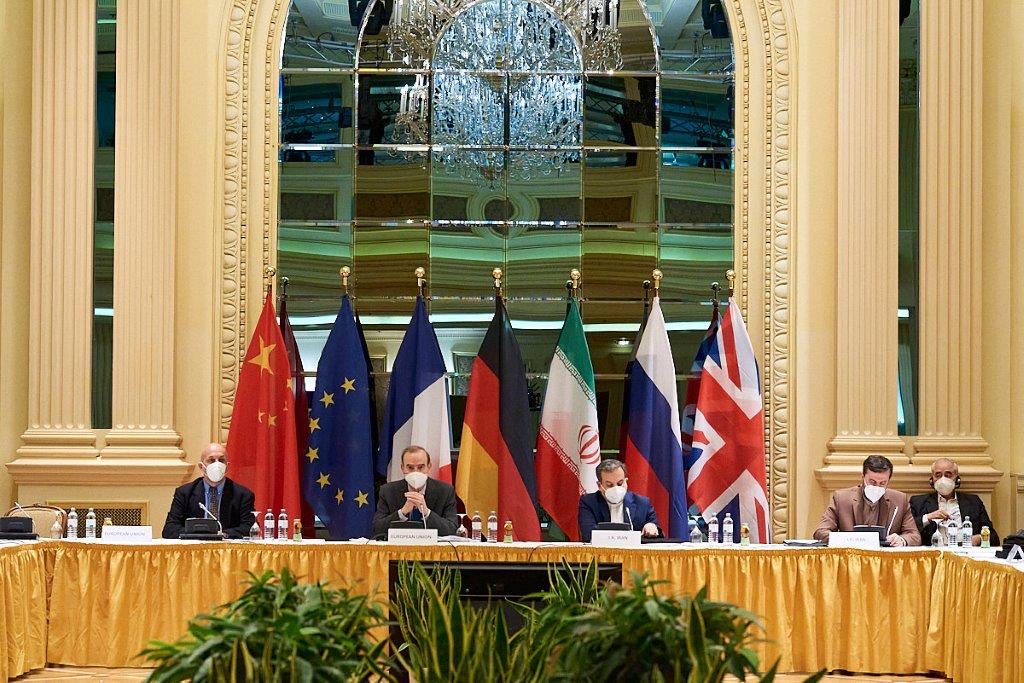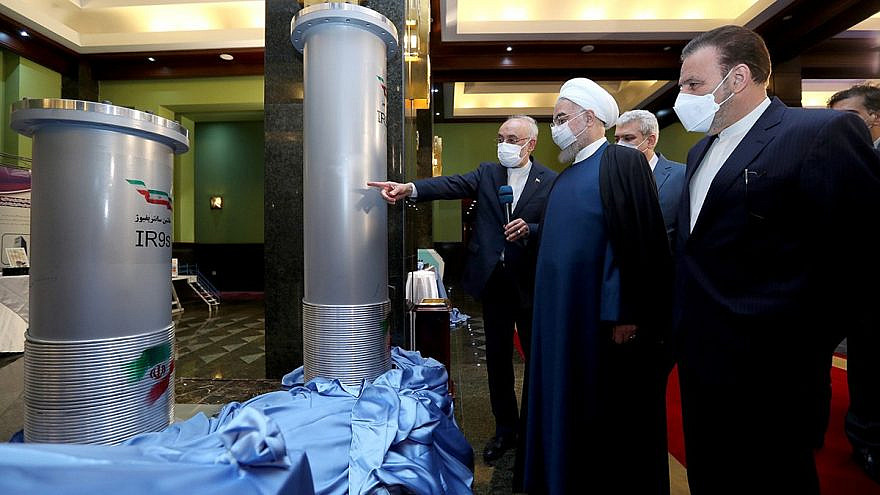Former Israeli Ambassador to the United States Ron Dermer is the personification of Jewish sovereignty. American-born, he made aliyah and served his country, Israel, at the highest levels.
According to Dermer, his proudest achievement was the moment Israel demonstrated its sovereignty to the world when former Israeli Prime Minister Benjamin Netanyahu traveled to the United States in March 2015 to speak out against the Iran nuclear deal before the U.S. Congress.
What I observed during the conflict was surprising—and I’m sure, welcome—support from Europe and the Biden administration for Israel to defend herself, and an international media that often seem dishonest and biased in their coverage of the conflict.
I asked Dermer what his take was on the international media’s coverage and what he believes they got wrong.
“It was pretty bad, and they just played right into the hands of Hamas,” whose strategy “is to essentially not only target our civilians, but embed their own civilians and essentially turn them into human shields,” he said. “They are actually putting their civilians in harm’s way, and what they rely on is either a gullible or malicious international media to then blame Israel for the civilian casualties,”
“And the media went for it,” he said. “Unfortunately, I think it’s not gullibility. I think it’s more malicious. I think it’s an attempt to cast Israel as the evil actor in this equation as a force for evil.”
Dermer said this intentional misinformation is “dangerous for democracies because it can light a tinderbox of anti-Semitism all around the world with this demonization of Israel that has been going on for many years,” he said. “And I think it reached a new crescendo in the latest round in Gaza.”

‘We’ve had a lot of Khmelnytskys in our history’
I asked Dermer what he believes Israel can do to try to do better on the PR front.
He replied that “the demonization of Jews is a very old problem. And many people believe that if we just educate people about the facts that the Jew-hatred will end. I don’t believe that.”
He added that to a certain extent, “the Holocaust has distorted our view of anti-Semitism.”
He said that since the Holocaust is such a “blinding event, [it] blocks out 25 centuries of anti-Semitism that happened before.”
He suggested to anyone yearning to understand the history of anti-Semitism to Google any century “and look at the attacks against Jews in that century, and it’ll shock people.”
“The demonization of Jews is a very old problem. And many people believe that if we just educate people about the facts that the Jew-hatred will end. I don’t believe that.”
“He’s lost from history,” according to Dermer, because Hitler’s infamy “blinds him out.”
“But we’ve had a lot of Khmelnytskys in our history,” he continued. “We’ve been expelled from countries throughout Europe and in other places around the world, we’ve had pogroms, we’ve had massacres, we’ve had all of this. This is a very old problem.”
“People thought that those decades after the Holocaust were a new normal, but it wasn’t,” he said. “It was just the exception to the rule. And what we have is the demonization of Israel, a return to the norm of anti-Semitism.”
Dermer argued that when people, especially public figures who command large audiences such as late-night TV comedians Trevor Noah or John Oliver, spread lies about Israel and call it an apartheid state or say it is guilty of war crimes, “they are taking a match and throwing it into a powder keg that is 2,500 years old.”
“The difference now is that the Jewish people have a state, the Jewish people have sovereign power,” said Dermer. “We have a shield, we have a refuge, we have a voice and we’re going to use it. As ambassador, I had meetings with scores of ambassadors. I never saw the ambassadors of Babylon, Imperial Rome or the thousand-year Reich. But there is an ambassador of Israel, and fortunately, we have sovereign power, and we have to use that power.”
“Jews have to begin to fight back against their own demonization. If we don’t stand up for ourselves, we learn from history. No one’s going to stand up for us, but I think that the tide is turning, and I hope that we’re going to stand very strong and push back against these forces, and hopefully, win the day,” he said.

‘Iran is certainly a major actor’
The conversation then moved to the role of Iran in the conflict between Israel and Hamas.
Last week, Newsweek published an article by H.E. Ali Rashid Al Nuaimi, chairman of the Defense Affairs, Interior and Foreign Relations Committee of the United Arab Emirates Federal National Council, in which he wrote, “the Middle East conflict isn’t between the Israelis and Palestinians, but between Israel and Iran.”
I asked Dermer what Iran’s role was in this conflict.
He noted the two main terror organizations in Gaza, Hamas and Palestinian Islamic Jihad, “which is a wholly-owned subsidiary of the government of Iran. Iran owns that organization and will instruct it whether or not to attack.”
“People thought that those decades after the Holocaust were a new normal, but it wasn’t. It was just the exception to the rule.”
Iran used to send weapons and missiles in particular to Gaza through Sudan and Egypt, through the Sinai and into Gaza. But then Israel, with the help of Egyptian President Abdel Fattah el-Sisi, interrupted a lot of those smuggling routes, and it became much more difficult for Iran to get rockets into Gaza.
“Hamas then shifted to a new strategy,” noted Dermer, “which is, if you give a terrorist a rocket, they’ll fire one, but if you teach them how to make rockets, they can fire thousands.”
“So you have missile-manufacturing capabilities in Gaza now,” he said. “In addition to the money that they get from Iran, it’s the expertise and the training and the political support that they get. So Iran is certainly a major actor.”
“Everywhere you look in the Middle East, if there’s a problem, nine times out of 10 Iran is behind it,” he said.
Perhaps the timing of this recent conflict was not coincidental. Could the Biden administration engaging with Iran in the Vienna talks have bolstered and empowered the Iranians, and their proxy Hamas, to take this aggressive action against Israel?
Dermer said he wasn’t sure about that assessment, but “there’s no doubt that Iran was very happy” and “had nothing to lose and everything to gain from this conflict.” To see Hamas fight is really good for the Iranians, [perhaps due to the] general sense of weakness that is being projected today because of [the U.S. and European] rush to go back to the nuclear deal, which makes no sense whatsoever.”
He also said he didn’t know if this weakness had any role in Iranian or Hamas decision-making, but that he was “pleased the Biden administration consistently backed Israel’s right to defend itself.”
“That was important,” he added. “I think that should be a no-brainer, but in today’s international politics, unfortunately, it’s not.”
“What happened in Gaza is essentially a sideshow to the larger issue of whether the U.S. is going to go back into the nuclear deal and make a terrible mistake, which could have catastrophic consequences for Israel’s national security and for the national security of our Arab partners in the region,” said Dermer.

‘Turn the world into a nuclear tinderbox’
Netanyahu and leaders in the Arab world and Sunni Gulf countries have warned the United States over and over again that if it does proceed to engage Iran in the Vienna talks and possibly go right back into the 2015 Iran deal, that it would lead to a nuclear arms race in the Middle East.
Dermer agreed, noting that Netanyahu had said in his 2015 speech that “it’s not a farewell to arms. It’s a farewell to arms control.”
“The second the Arab states believe that Iran is actually going to get nuclear weapons, the Saudis, Turks, Egyptians and others are going to want to have nuclear weapons of their own,” he said. “And then you’re going to turn one of the most dangerous areas in the world into a nuclear tinderbox. It is breathtaking, and everybody’s silent about it.”
I asked Dermer if he thought that America is taking into consideration both the Israeli and Arab concerns with the talks.
“No, I don’t think they’ve taken it into consideration,” he replied.
“In the case of Iran, Israel and the Arab world, we’re 100 percent against doing this deal,” he said. “We said publicly what the Arab world said privately. Everybody knew exactly where the Arabs stood.”
Dermer noted everyone was saying in 2015 that the deal blocks Iran’s path to the bomb, “and it was just not true. It was false then. And it’s false now. If it were true, the prime minister of Israel would have been the first world leader to embrace the deal.”
“The second the Arab states believe that Iran is actually going to get nuclear weapons, the Saudis, Turks, Egyptians and others are going to want to have nuclear weapons of their own.”
While the United States and the P5+1 are thousands of miles from Iran, “we live in the region,” said Dermer. “We are the guinea pigs of this failed experiment of the nuclear deal. And because they’re locked into an ideology or a political position, they are gambling with the security of hundreds of millions of people in the region.”
“There is no reason whatsoever why the U.S. should be going back to the deal,” he said. “It is a breathtaking act of appeasement. And I hope that president Biden will not make this terrible mistake.”
I asked Dermer about his own experience as ambassador while working with the United States under two very different administrations and two wildly different American presidents, Barack Obama and Donald Trump.
Dermer said his proudest moment was when Netanyahu traveled to Washington, D.C., in March 2015 to give a speech against the proposed Iran deal before Congress “because in doing so, he gave meaning to Jewish sovereignty,” which he said means that “we have the military power to defend ourselves. It means that we have a refuge for Jews fleeing persecution around the world.”
I asked Dermer what his plans are for the future.
“I don’t know,” he said. “I haven’t decided. I hope to be able to contribute, as I’ve been blessed and privileged over the last 12 years, to continue to help secure the Jewish future and defend the State of Israel.”
Ellie Cohanim is a naturalized American broadcast journalist who has served as deputy special envoy to monitor and combat anti-Semitism at the U.S. Department of State.


























